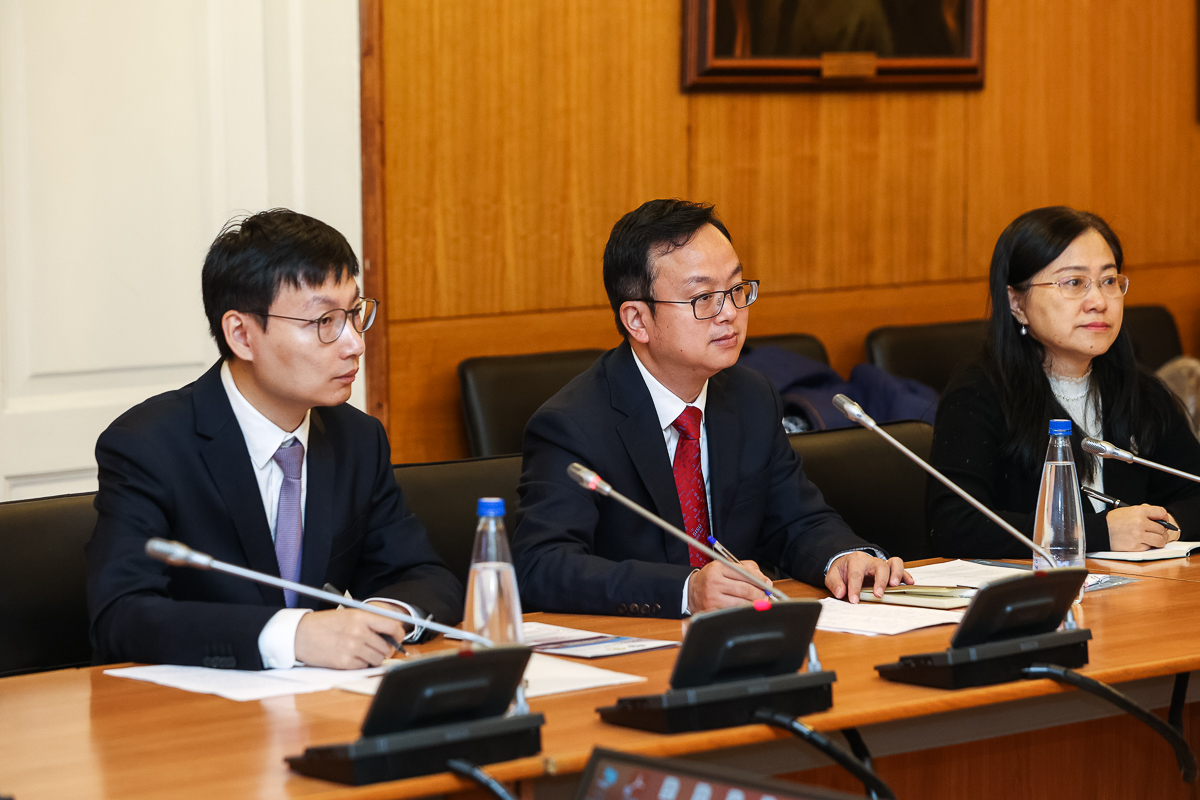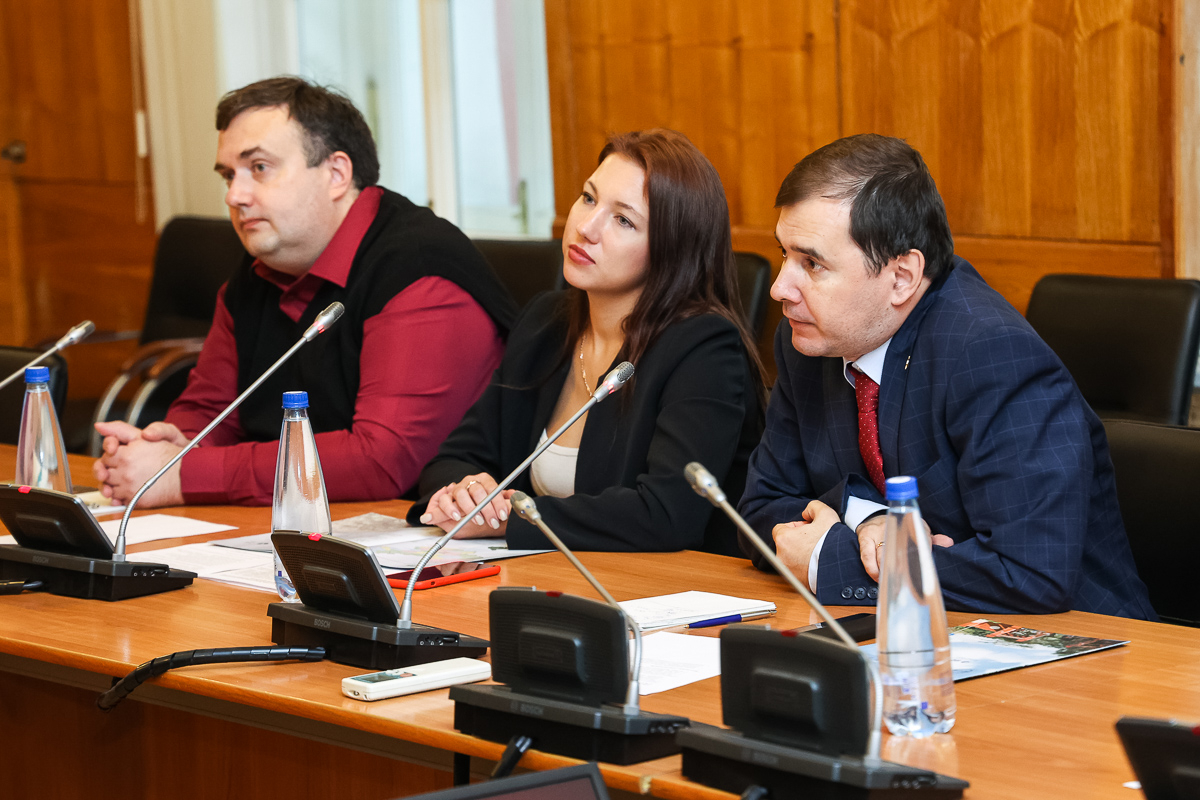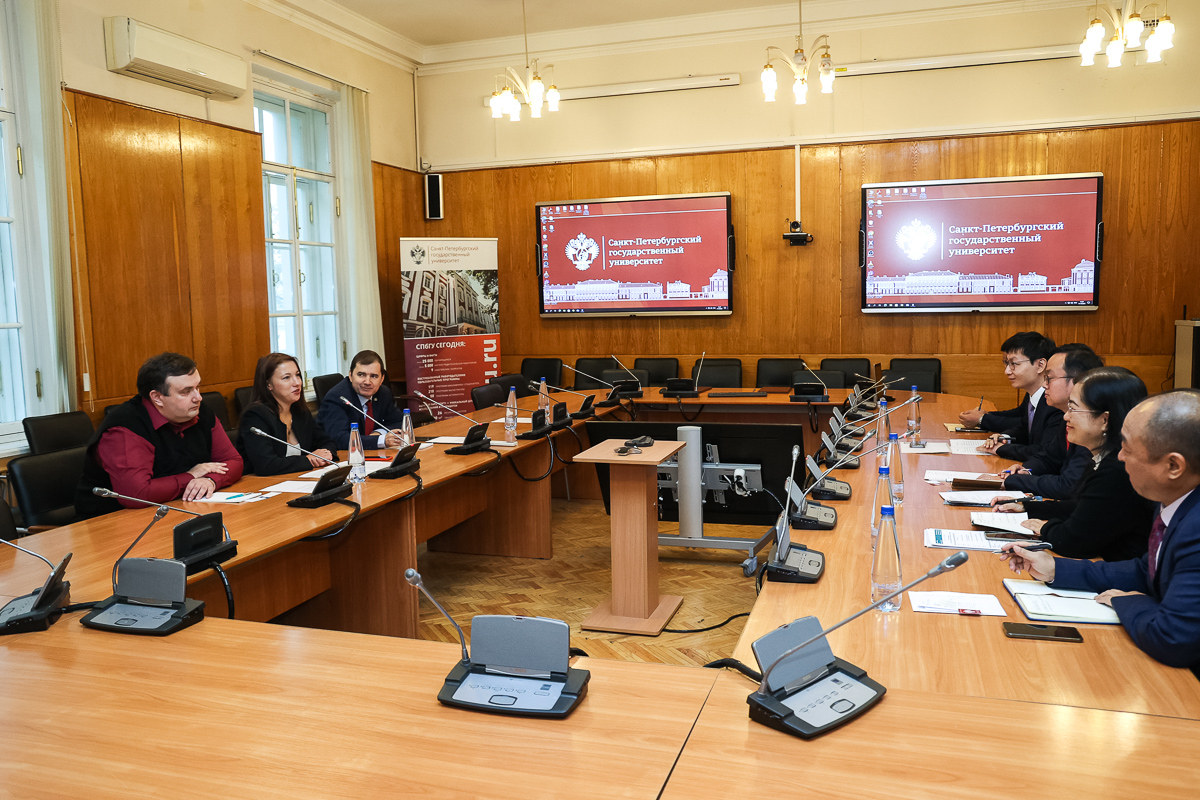SPbU signs cooperation agreement with Sichuan International Studies University
SPbU was visited by a delegation from Sichuan International Studies University. During the meeting, the parties identified priority areas for cooperation and signed a cooperation agreement.
Valeria Malomuzh, Deputy Vice-Rector for International Affairs at SPbU, noted that St Petersburg University has more than 80 partners from China in the field of education and science. These include Tsinghua University, Peking University, Qingdao University, Jilin University, Liaoning University and many others.Deputy Vice-Rector also shared the experience of collaboration with Harbin Institute of Technology: ‘The agreement on the establishment of a joint campus of SPbU and HIT was concluded in 2019. The joint campus welcomed its first students in autumn 2022. At the moment we have almost 300 students’.
In 2019, St. Petersburg University awarded an honorary doctorate to the President of the People’s Republic of China Xi Jinping. The event was attended by the President of the Russian Federation, Vladimir Putin, and the Rector of SPbU, Nikolay Kropachev.
SPbU was one of the first universities to sign a cooperation agreement with the Ministry of Education of the People’s Republic of China. This partnership allows the University to organise internships for faculty members.
Sichuan International Studies University is a multidisciplinary university based on the study of foreign languages and literature, combined with training in Chinese philology, journalism, education, economics, management and law.
During the meeting, it was suggested that the same partnership be established with Sichuan International Studies University. The delegation expressed interest in sending teachers to SPbU on a regular basis for professional development. Chinese colleagues noted that students in their country are interested in Russian history and culture and that there is a high demand for education abroad. The delegation suggested organising academic mobility programmes for students. ‘SPbU offers around 80 programmes with in-depth study of Chinese language, law, economics and culture. More than a thousand Russian-speaking students are studying Chinese,’ said Valeria Malomuzh. ‘In this regard, we propose that experts from Sichuan International Studies University hold open lectures for SPbU students. We are confident that such courses will help future Chinese students to delve deeper into the subject’.
SPbU scientists have co-authored more than 1,200 scientific papers with colleagues from China. The University has more than 5,000 international students, including more than 2,000 citizens of the People’s Republic of China.




